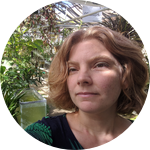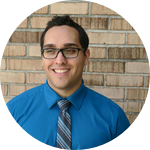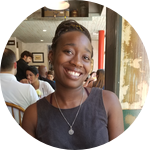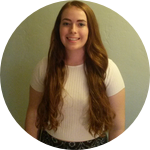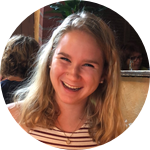Project Results
Extracts prepared from both old and new yaupon holly leaves caused unregulated cell death in treated human leukemia cells. However, no decrease in metabolic activity was detected in treated non-malignant human fibroblasts.
About This Project
Last year our lab discovered that human leukemia cells treated with yaupon holly leaf extract caused cancer cell death. We tested both old and new yaupon holly leaf extract. This project is a follow-up to examine old and new yaupon holly leaf extract cell death mechanisms and normal cell toxicity. We hypothesize that normal cells are resistant to yaupon holly induced cell death and treated cancer cells undergo oxidative stress that leads to cancer cell death.
Ask the Scientists
Join The DiscussionWhat is the context of this research?
As cancer continues to be a disease of high incidence, the need for new cancer therapies is urgent. Natural plants and plant-based substances have been reported to have anticancer properties and cause cell death in various types of cancer. In 2017, my Stetson University undergraduate research students investigated the ability of yaupon holly to cause human leukemia cell death. Yaupon holly is a shrub native to the southeastern portion of the U.S. Yaupon holly new and old leaf extracts were found to cause cell death in leukemia cells. The next steps of this project are to 1) study whether normal cells are sensitive to yaupon holly extract and 2) study how treated cancer cells die.
What is the significance of this project?
Anticancer properties of yaupon holly are largely unexplored. This research will characterize intracellular cell death mechanisms in leukemia cells treated with yaupon holly extract. We will also examine human normal cell metabolism and cell death after yaupon holly extract treatment to determine whether yaupon holly extract specifically targets cancer cells while leaving normal cells unharmed. Additionally, we will investigate molecular differences between new and old yaupon holly leaf extracts. We hypothesize that yaupon holly new leaf extract causes more oxidative stress in treated leukemia cells compared to old leaf extract, thus highlighting anticancer differences between new and old yaupon holly leaf extracts.
What are the goals of the project?
We hypothesize that yaupon holly new and old leaf extracts will causes oxidative stress in treated leukemia cells. Prolonged oxidative stress can initiate regulated cell death, emphasizing the need to study oxidative stress in cancer cells treated with yaupon holly extract.
0.5 million cells will be seeded in 6-well tissue culture plates. Yaupon holly extract (0.5-4uL) will be added to the cells for 24-72 hours. After treatment, cells will be collected and measured for oxidative stress using Promega ROS-Glo and Millipore Oxidative Stress kits. Cells will be acquired on a Biotek bioluminescent plate reader or Millipore Muse Cell Analyzer.
Secondary metabolite profiling in yaupon holly extracts will be analyzed by high-performance liquid chromatography.
Budget
Budget items will be used to grow and maintain leukemia cells and normal fibroblasts. Additionally, we will purchase bioluminescent and flow cytometry kits for students to examine induction of oxidative stress in leukemia cells treated with yaupon holly new and old leaf extracts. Students will acquire their data on a flow cytometer and bioluminescent plate reader presently housed at Stetson University.
Endorsed by
 Project Timeline
Project Timeline
September 2018 -Examine normal cell toxicity
October 2018 -Define intracellular cell death mechanism (new leaf extract)
November 2018-Define intracellular cell death mechanism (old leaf extract)
Sep 05, 2018
Project Launched
Sep 28, 2018
Test normal cell susceptibility to yaupon holly extracts
Oct 26, 2018
Test oxidative stress in cancer cells treated with new leaf extract
Nov 23, 2018
Test oxidative stress in cancer cells treated with old leaf extract
Mar 22, 2019
Research poster shared with donors
Meet the Team
Roslyn Crowder
I received my Ph.D. in microbiology and immunology from the University of Alabama at Birmingham. My research training includes postdoctoral research positions at the University of Pennsylvania and Penn State Cancer Institute. I am currently a 2018 Keystone Symposia Fellow, Biology Division Councilor for Council on Undergraduate Research and Ambassador for American Society for Cell Biology.
I am a molecular cancer biologist with interest in cell death signaling pathways. I study differences between human normal cells and cancer cells, in the hope of exploiting these intracellular differences to strategically cause cell death in cancer cells but not normal cells.
I have 13 years experience teaching undergraduates. I am a dedicated mentor and educator. I strive to provide my undergraduate students with an authentic research experience that will aid in their acceptance into competitive graduate programs or health-related jobs.
To date, I have mentored twenty undergraduate research students in my laboratory at Stetson University. My former research students are currently in graduate schools at Florida State University and University of Notre Dame, medical schools at Florida International University and Mercer University; and dental schools at University of Florida and University of Buffalo.
Michael Morello
Hometown: Ormond Beach, Florida
Classification: Senior
Career plans after graduation: Pursue a higher education degree in medicine
Munashe Y Holloman
Hometown: Philadelphia, Pennsylvania
Classification: Senior
Career plans after graduation: Join Peace Corps as a health volunteer
Rachel Regester-Goumas
Hometown: Lake Worth, Florida
Classification: Senior
Career plans after graduation: Attend medical school
Makenzie Fourman
Hometown: Englewood, Florida
Classification: Senior
Career plans after graduation: Attend cancer biology Ph.D. graduate program
Rachel Wexler
Hometown: Tampa, Florida
Classification: Senior
Career plans after graduation: Attend graduate or professional school
Anthony Bonilla
Hometown: Orlando, Florida
Classification: Senior
Career plans after graduation: Pursue career in orthopedics or neurology
Lab Notes
Nothing posted yet.
Project Backers
- 62Backers
- 142%Funded
- $4,627Total Donations
- $74.63Average Donation
